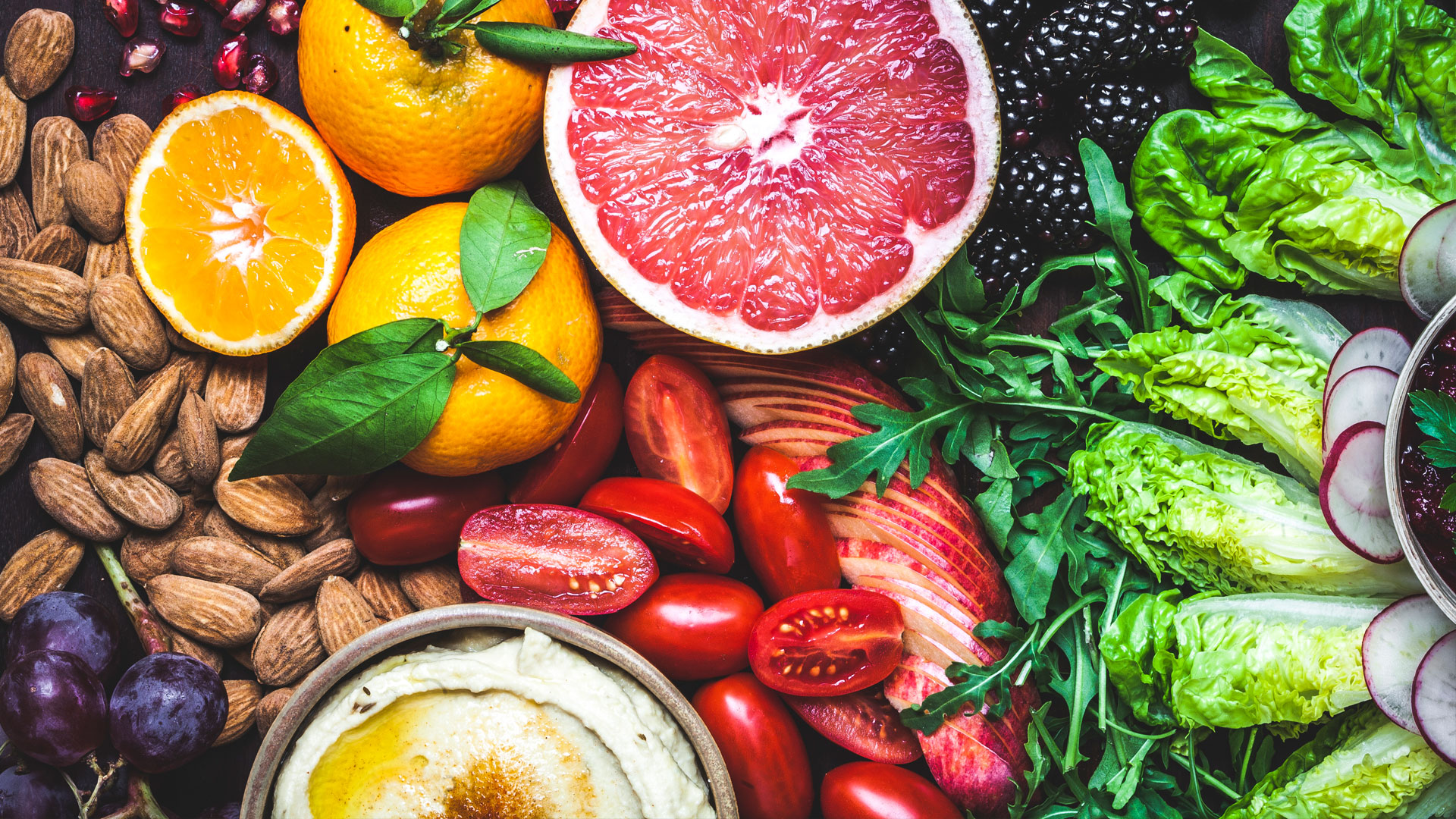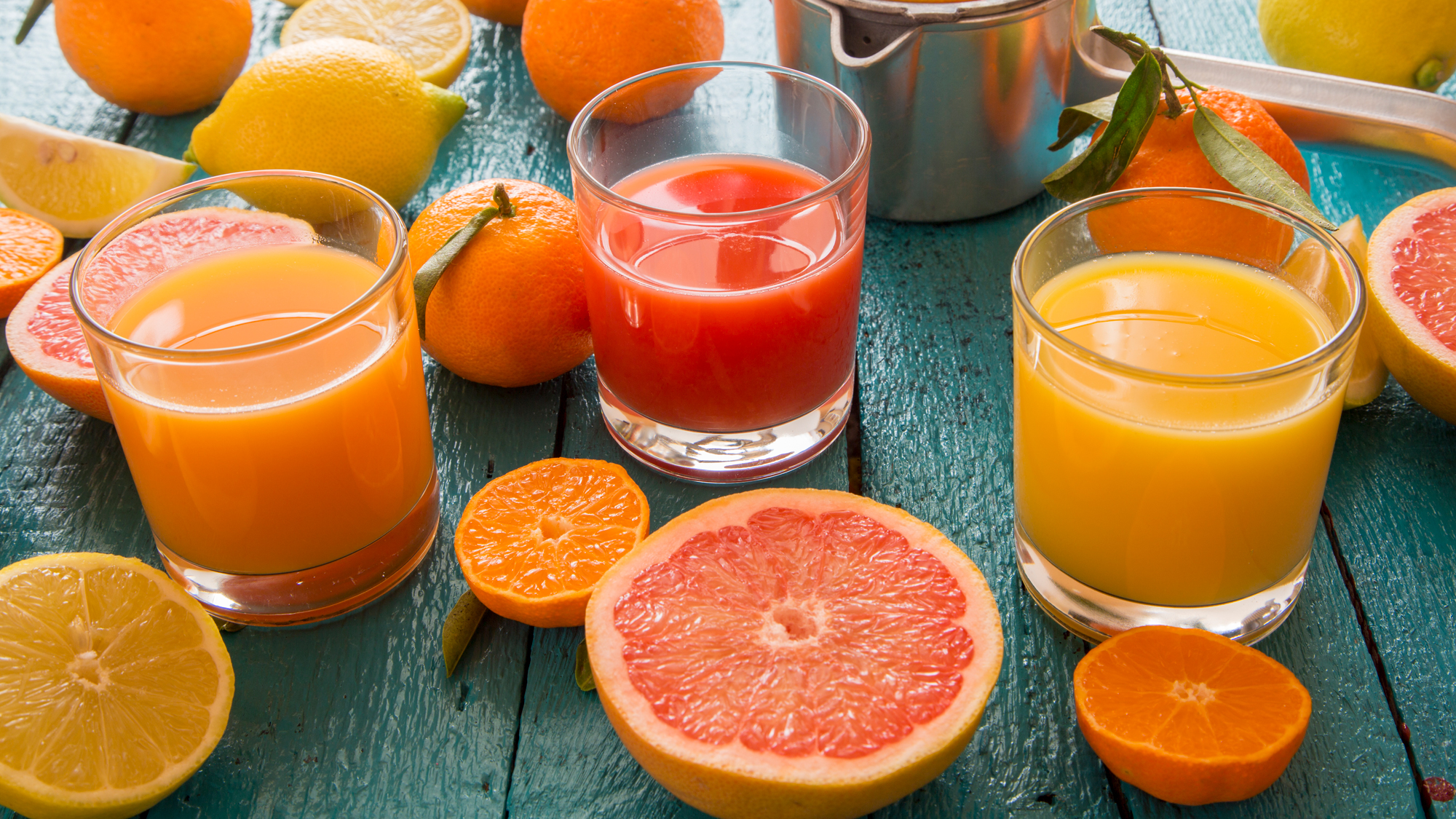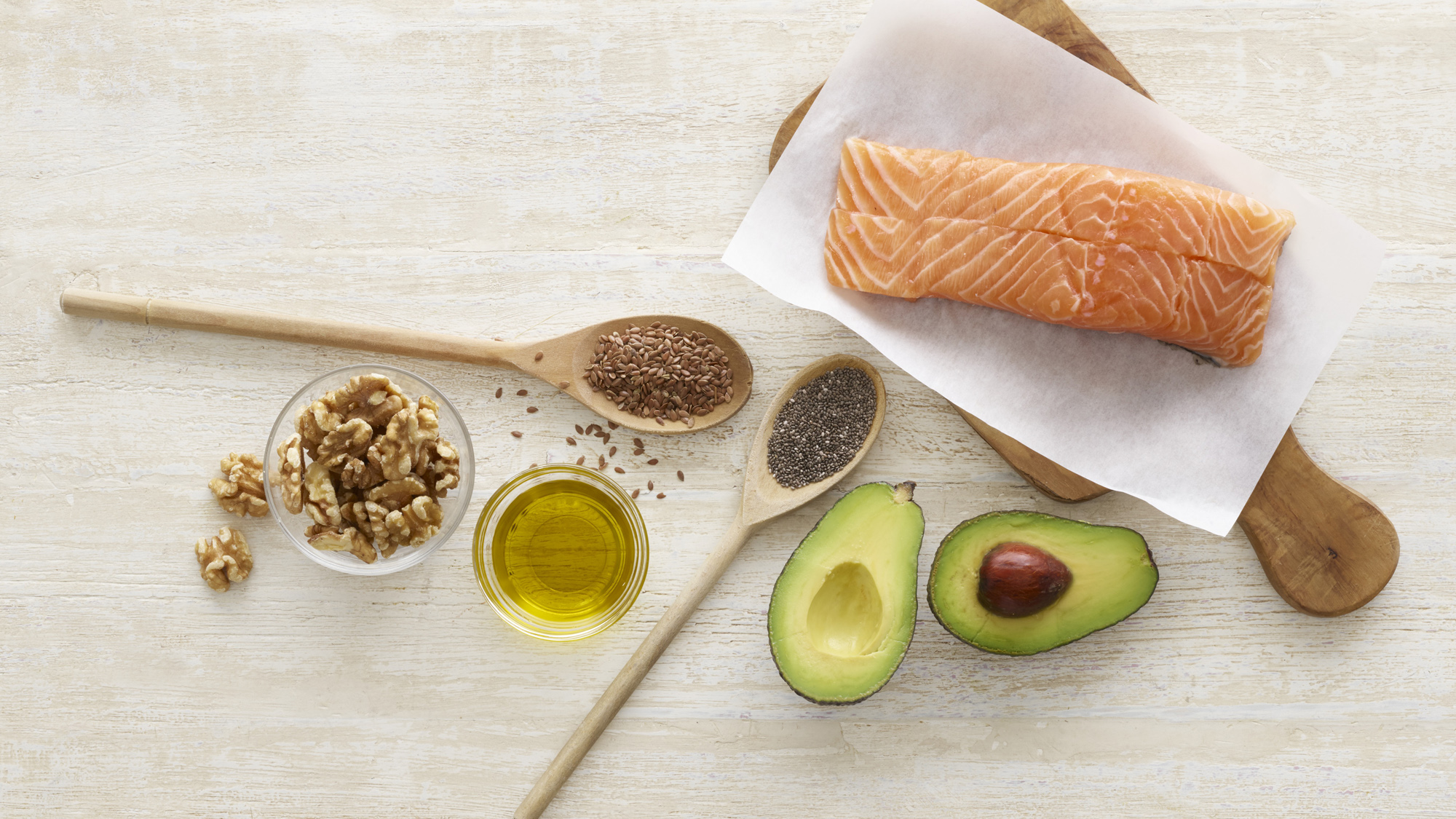Eight anti-aging vitamins and how to get them from your diet
Being savvy about your nutrition can pay off. We’ve rounded up eight anti-aging vitamins that may help future-proof your health


Supporting your body at any age is important, but making sure you’re including key anti-aging vitamins in your diet can help you stay healthy into your golden years.
According to the CDC and the U.S. Department of Agriculture (USDA), around 70% of elderly people are deficient in vitamin D in the US and nearly 31% of people are at risk of at least one vitamin deficiency, according to the National Health and Nutrition Examination Survey. We all know that the starting point for good health is nutrition, so zoning in on the foods that can provide you with plenty of minerals, vitamins, and antioxidants will equip your body better for the aging process.
Whether you’re looking for the best joint supplements or you simply want to find out what foods promote heart health, we’ve collated a list of the top eight anti-aging vitamins to focus on and where you can find them, including well-known vitamins such as vitamin C and E and lesser-known nutrients, such as quercetin and lutein.
Eight anti-aging vitamins
1. Omega-3 oils
As we get older, we become prone to developing cardiovascular problems like high blood pressure and heart disease, so including heart-friendly foods in our diet is important to keep our body healthy.
“Omega-3 oils promote anti-inflammatory responses in the body and provide essential fatty acids for healthy cell membranes,” says Caroline Hind a registered nutritional therapist for Vitaminology. “Studies show that EPA and DHA omega-3 oils support good brain function, vision, and cardiovascular health. They also protect the nervous system and reduce joint pain and stiffness.
Including fish oils and omega-3 foods in the diet is a good tactic to support the body through the aging process – look for fatty fish such as sardines, salmon, and mackerel, but check with your doctor if you are taking blood-thinning medication, as fish oil can interact with this kind of drug.”
Discover more benefits of fish oil.
Start your week with achievable workout ideas, health tips and wellbeing advice in your inbox.
2. Vitamin C
A popular anti-aging vitamin in both skincare and nutrition is vitamin C, which is found mostly in fruits and vegetables. “Vitamin C is an important vitamin to include in the diet to minimize signs of aging in the skin,” says Hind. “The body needs vitamin C for the production of collagen, the protein used in skin maintenance and repair.”
Vitamin C can also support your skin, preventing the loss of water and reducing the formation of wrinkles.
“Vitamin C also protects the skin through its antioxidant properties,” says Hind. “Everyday exposure to environmental factors such as UV radiation and pollution causes oxidative stress in skin cells that vitamin C can counteract, reducing unwanted skin pigmentation and even the risk of melanoma.”
Include vitamin C in your diet by filling your plate with colorful fruits and vegetables like peppers, citrus fruit, leafy greens, cherries and berries. Fresh apples, pears and plums are also excellent sources of vitamin C.

3. Quercetin
Certain antioxidants are beneficial not just for our skin, but for our overall health. In particular, research on quercetin (commonly found in apples, parsley, onions, and citrus fruit) has revealed this vitamin to have anti-inflammatory properties.
“Quercetin is a powerful antioxidant that shows potential to have a protective effect against degenerative diseases,” says Hind.
4. Lutein
Age-related macular degeneration is a common cause of vision problems in older age, but including nutrients such as lutein in your diet can help you keep your vision healthy.
“The cells that make up the macula in the back of the eye, the retina, are particularly prone to damage over the years from oxidative stress,” says Hind. “Lutein is one of the main antioxidant compounds that accumulate in the macula to create the macular pigment that is essential for vision and protection from UV light.”
You can find lutein in green and yellow plant foods such as broccoli, kale, romaine lettuce, green beans, asparagus, avocado, egg yolk, and orange peppers.
“Including these foods in meals that contain healthy fats such as olive oil can help the body absorb and use lutein,” adds Hind.
5. Alpha lipoic acid
“This little-known nutrient can improve memory and reduce cognitive decline,” says Hind. “Alpha-lipoic acid is a strong antioxidant that helps prevent damage to cells, reducing inflammation and slowing aging.”
A review of studies in Critical reviews in food science and nutrition suggests that alpha-lipoic acid can help prevent heart disease, improving skin health, and slowing arthritis.
“The best food sources are organ meats, such as liver, heart and kidneys. Vegetarians can also get some alpha-lipoic acid from broccoli and spinach,” says Hind.
These vegan sources of omega-3 are also high in ALA.

6. Betaine
As we get older, many of us want to know how we can protect our brain and keep it firing on all cylinders. Just like omega-3 and vitamin D, betaine is another vitamin that can boost our brain health.
“Betaine is a natural anti-inflammatory substance that is available in the diet which shows promise for improving memory function,” says Hind. “Reducing overall inflammation in the body can dampen inflammation in brain tissue and protect the circulatory system that brings oxygen and nutrients to the brain. Good sources of betaine include beetroot, spinach, shellfish, and wheat germ.”
7. Vitamin E
Vitamin E is a known added ingredient to many skincare products, but did you know we can also find it in food sources such as oats, grains, dairy products, and nuts?
According to the NHS, vitamin E helps the body to fight illness and infection while also supporting healthy skin and vision. A preliminary study in The journal of prevention of Alzheimer's disease also shows that vitamin E can contribute to a healthy brain, but more research is needed to confirm these findings.
8. Collagen
“Collagen is a strong but flexible protein that makes up the connective tissues in the body,” says Hind. “Skin is the number one part of the body we think of as we age, and it’s true that collagen is needed in the diet to keep skin healthy and supple. However, collagen makes up so much more of the body too, including bones, joints, and blood vessels.”
Collagen is a popular supplement at the moment for anti-aging, but as well as adding collagen into shakes or taking it as an oral supplement, bone broths and slow-cooked meat or fish dishes are another great way of getting this nutrient into your diet.
“As we age, our connective tissue can degenerate faster than our bodies can repair it,” says Hind. “Multiple studies show that adding collagen into the diet can improve joint pain and flexibility in osteoarthritis patients. Collagen also has anti-inflammatory effects that can help your digestion.”
Stacey Carter is a Freelance Health Writer who has written print features and digital content for titles such as Woman & Home, Natural Health, Women’s Health, Get The Gloss, and Stylist. You'll find her covering a wide variety of health-based topics, talking to leading figures in the fitness industry, and investigating the latest trends in wellness. When she’s not at her laptop, weekend hikes, testing out new recipes in the kitchen and LISS-style workouts are her favourite ways to switch off.
